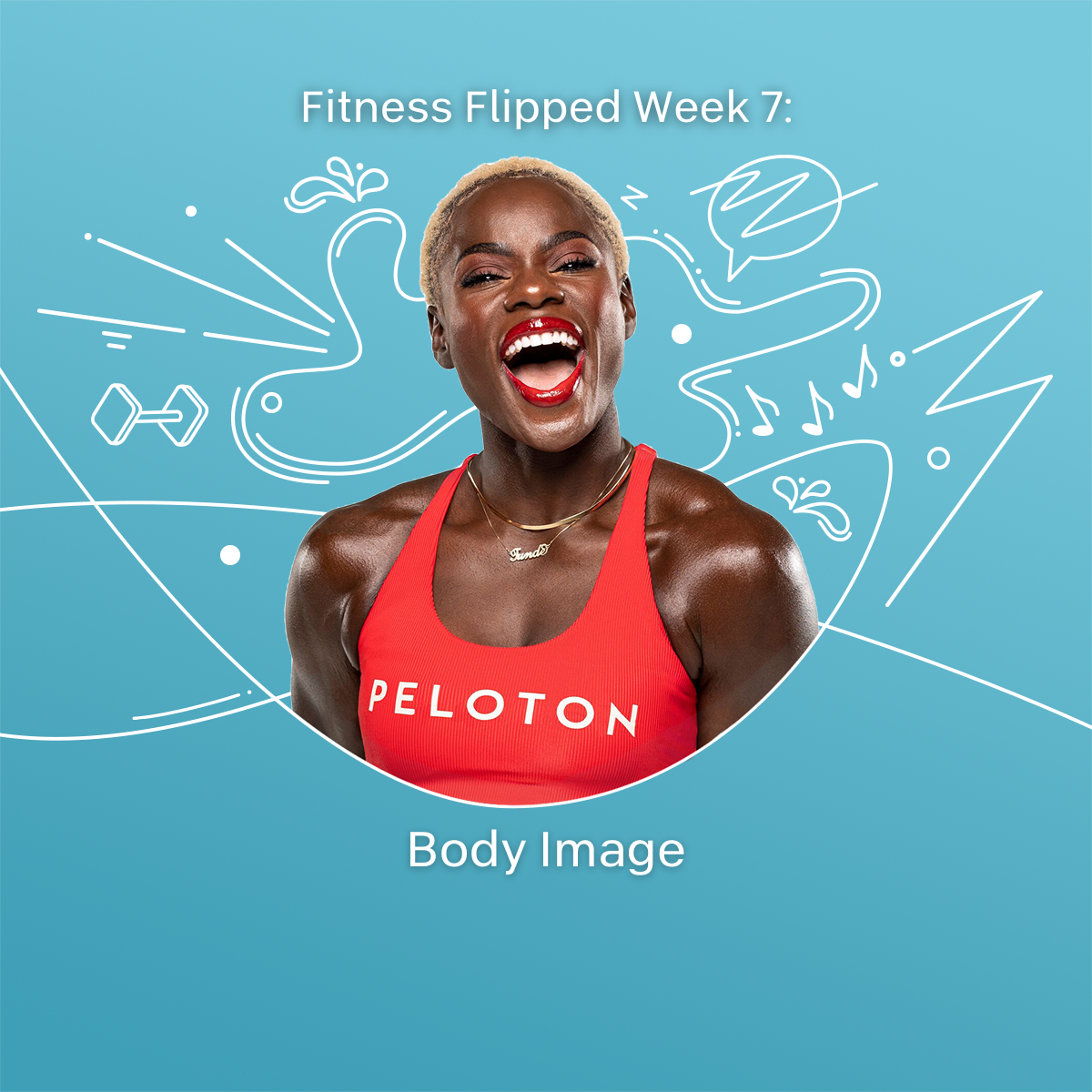
Fitness Flipped Podcast Week 7: Changing How We See Ourselves
The tools you need to tune into how you feel, not what you look like in the mirror.
By Colleen Travers•
If there’s one topic of conversation that needs to be flipped, it’s the concept of body image. How we view our body is often a reflection of the relationship we have with ourselves. Yet so many factors influence body image, and while you can’t always avoid these external forces, you can rewrite the story of how you see your own body image.
Take a look at how Peloton instructor and podcast host Tunde Oyeneyin tackles the topic this week, during eye-opening chats with record producer Mustard, Peloton Member and LA-based comedy writer Caitie Delaney, and Nancy Chen, professor of anthropology at UC Santa Cruz, on how body ideals are made and how quickly they can shift.
Body Ideals Reflect Our Environment
“The term ‘body ideal’ is a notion of what a body ought to look like,” Chen says. “That notion reflects social, political, and environmental relations. That’s why body ideals are not the same around the world. What might be considered beautiful in one society may not be the same view in another.”
With such an emphasis on social media in our culture today, body ideals change quicker than ever. “Social media has compressed our sense of time and space, meaning new trends travel faster,” says Chen. “What used to take place within a generation is now happening in a year or two.” This warped speed means that there is no single body image ideal. Instead, many ideals coexist, and it’s important to focus on the one that resonates with you.
Think of Body Image as It Relates to Health, Not Waist Size
Chen tells Tunde how the pandemic made much of the population realize that their bodies were their only line of defense when it came to staying healthy. This has caused a change in body image ideals. Instead of focusing on how thin someone is, there is now a movement to appreciate how functional our bodies are. Being grateful to be able to do activities with those you love while taking care of your body—the thing that is helping you survive—is the healthy mindset we all need to adopt.
Mustard is the perfect example of this. He shares his story with Tunde: While body confidence was never an issue for him, the realization that his health was literally in his hands made him make long-lasting changes and start a fitness routine that has helped him physically and mentally.
How to Rewrite Your Body Image Story
Delaney has long dealt with the complex spectrum of body image. “There were a lot of comments about how I was a very small, thin little kid,” Delaney says. “That makes you aware that you might be different. Knowing that about myself and then going through puberty, gaining weight and then being an overweight person for most of my adult life—I will never stop comparing myself to my child body. And that is so messed up, viewing my younger body as something to envy.”
Delaney touches on an important point here: Even if you are comfortable with your body, everyone still has bad days (even Tunde!). It’s how you accept and move past those bad days that can slowly solidify your body confidence. Delaney shares with Tunde how she decided to lose weight and how the result of living a healthier life has been more rewarding than the number on the scale.
Listen to the full episode and then try Tunde’s Weekly Challenge: Write a new story about your body, focusing on what it does for you. Share it to inspire others: Tag @tunde2tunde and @OnePeloton and use #FitnessFlipped to participate.